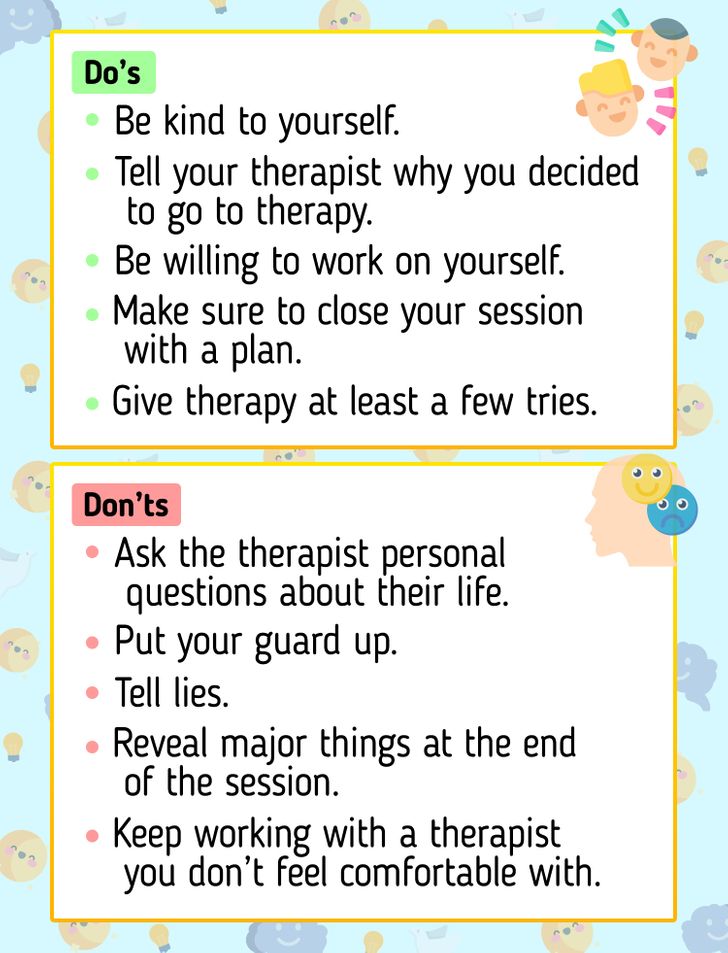What to Expect When You Go to Therapy for the First Time
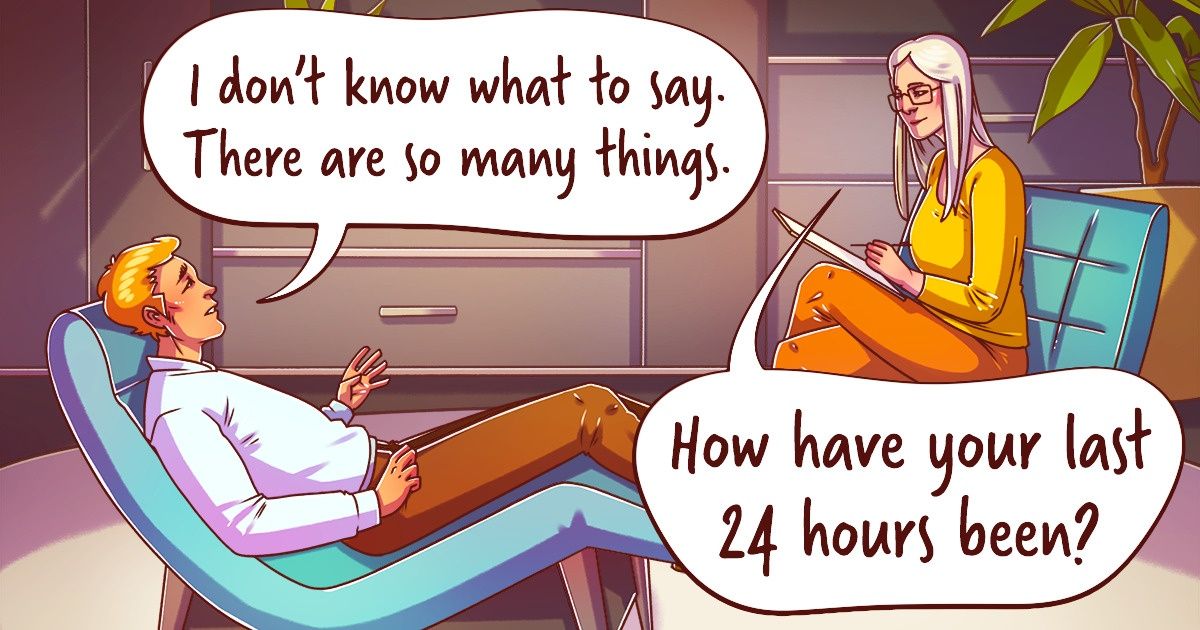
It takes a lot of courage and bravery to go for therapy when you believe you need some kind of help or when you are going through some challenges in life. And if you’ve already booked your first appointment, you may be wondering what your session may entail and what to expect when you meet your counselor or therapist for the first time. So, 5-Minute Crafts has put together some of the essential things to look forward to in your first therapy session.
1. Ask for a free consultation before you book an appointment.
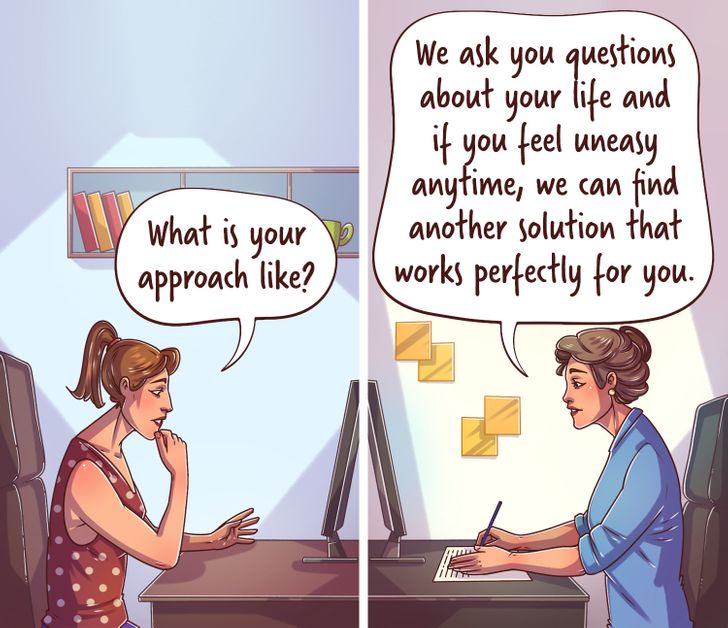
There are many therapists available who believe in providing a free first consultation to new patients. Make the most of this benefit and ask any basic questions you may have on your mind like how they work with the client, what their approach is like when it comes to working on your issues, and any important consideration they should make before the first session. Listen to your instincts, if you feel comfortable talking to them, you can move forward with booking a session with them.
2. They may also have a few questions for you to understand what kind of therapy you need.
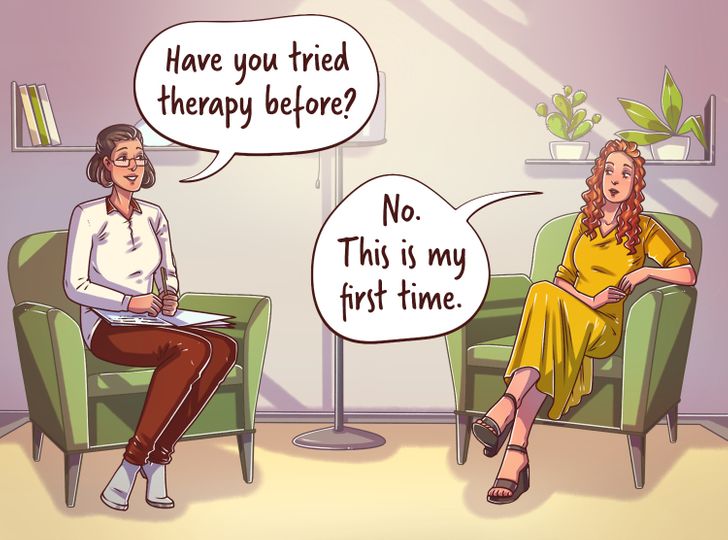
To understand the type of therapy you may need, your therapist may ask you about the issues you’d like to address and what you’ve done in the past to manage your mental health. They’ll also ask about what worked for you and what didn’t, to tailor your therapy sessions accordingly. They may ask you questions like:
- Have you tried therapy before?
- How is your home life?
- Has anyone in your family history been through mental health issues?
- What are your symptoms?
3. Their job isn’t to solve your problems.
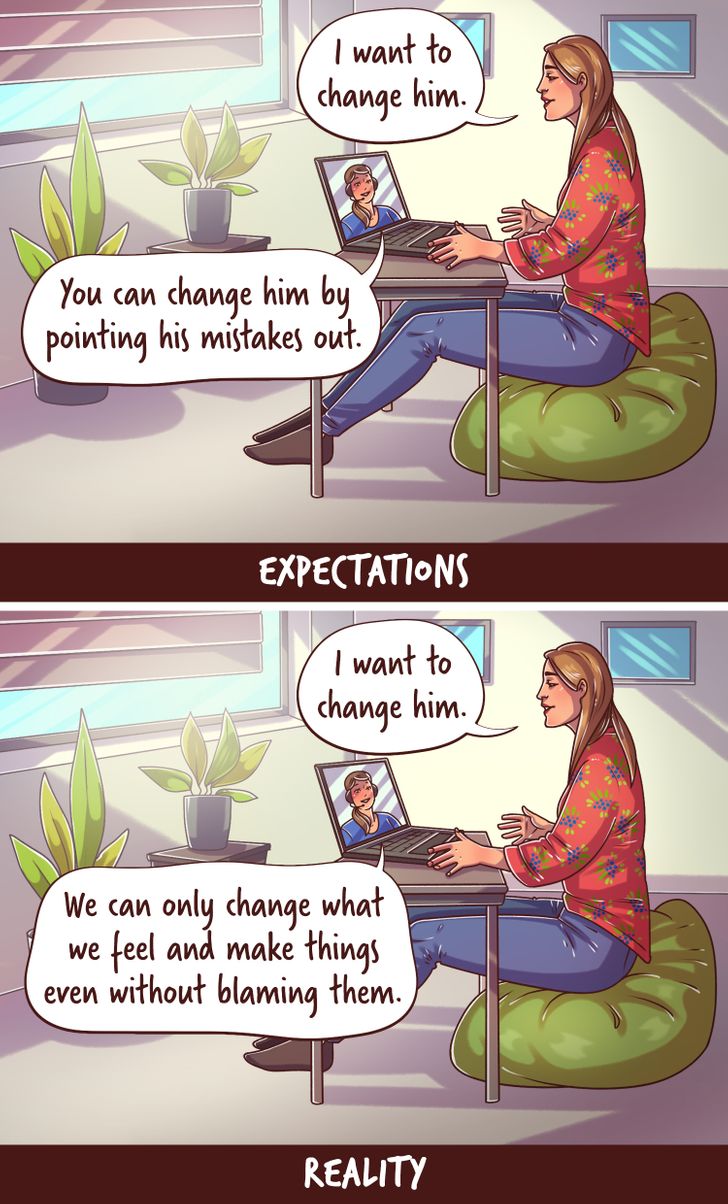
They won’t tell you what to do or touch on the wrongs and rights of the people in your life. Instead, they’ll ask you to focus on things you can and cannot change, in other words, you, your choices, and your responses toward situations. They’ll also help you to self-reflect by looking deep into past trauma and develop coping strategies to address any of your fears that may arise.
They’ll also dive deeper into your relationships, not to determine the faults of the people who hurt you but to help you understand how to make these bonds better or set boundaries if needed. Once you get along with your therapist well, you’ll realize that they’re amazing sounding boards and that they offer the proper resources whenever required. Their gist is to make you understand how to help yourself in a better way.
4. You may feel uncomfortable at times.
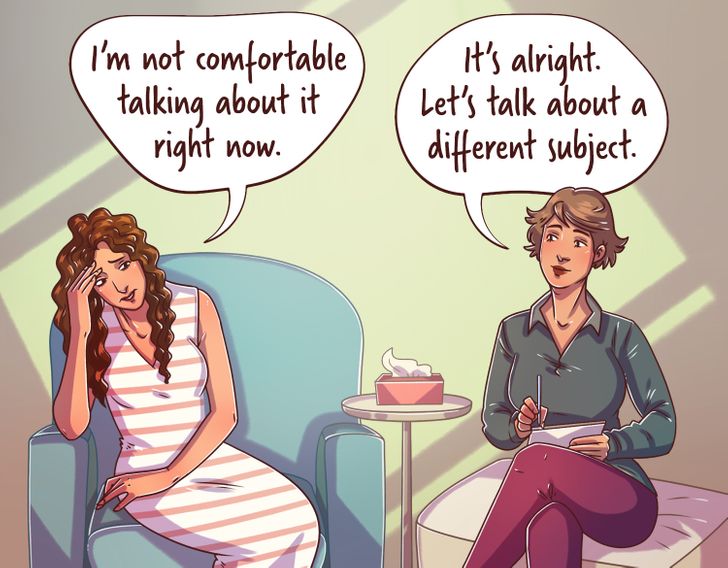
Your therapy sessions may also call for making changes in your life, as becoming what you want to be is a process. And it’s not an easy thing to go through. It may make you uncomfortable in the beginning, making you feel as if your symptoms are worsening, but it will ultimately help you to pave a path toward where you want to be.
5. Understand that not every session needs to have a major thing to discuss.
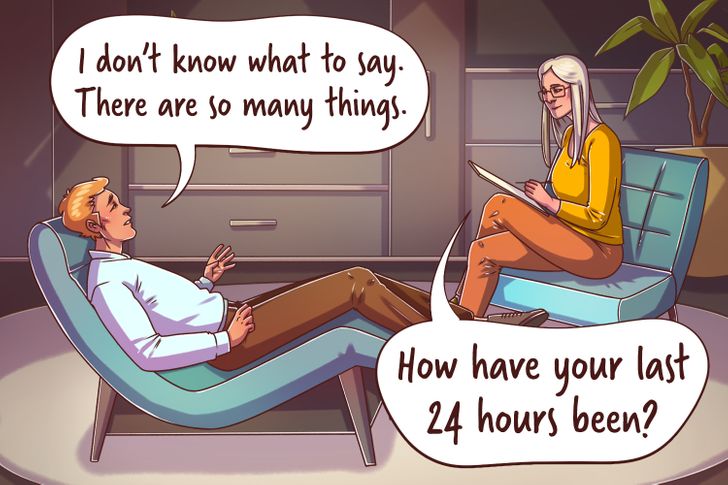
There will also be times where you’ll have nothing big to talk about during your sessions, but these conversations can sometimes lead you to great breakthroughs. And when this occurs, your therapist may ask you a few things to get to the gist of your issue and keep the conversation productive and on track.
This helps because we tend to not bring certain things up in therapy when they’re hard to deal with. But when you feel safe with your therapist, you can vent about a lot of things that are bothering you and you may start to realize that they are issues to be addressed.
6. Speak up when you don’t agree with your therapist on a certain subject.
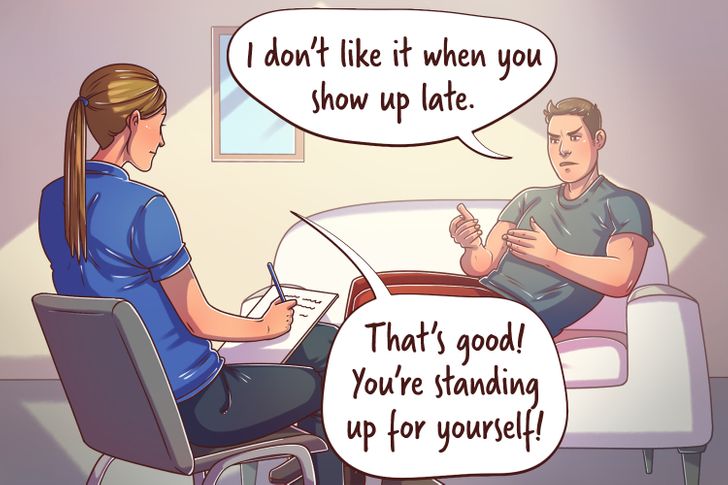
Therapy is meant to be a safe environment where you can share anything with your therapist. This comfortable space also includes a part where you don’t understand something or where you disagree with your therapist on a certain point, and you speak up. This greatly helps the therapist to understand you better and tailor your treatment accordingly.
For instance, if you don’t like when your therapist shows up late, you express what you feel. In this way, you and your therapist will celebrate the fact that you were able to assert yourself.
7. Don’t ghost your therapist if things are not working out.
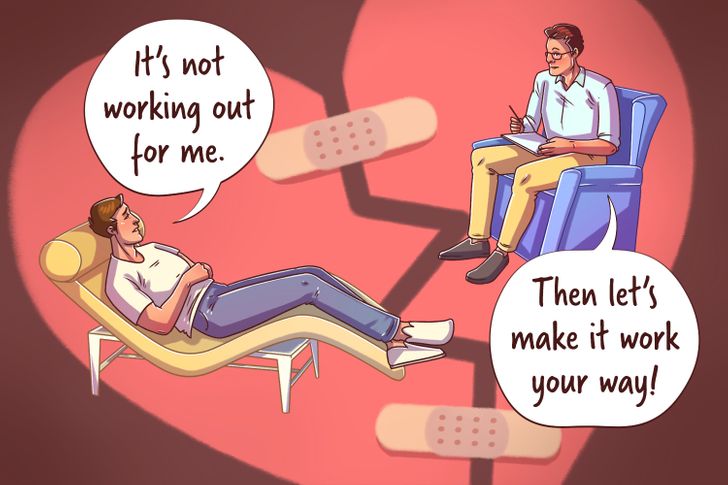
If you’ve been working with your therapist for a long time, it is always advisable to talk it out with them if their services are no longer beneficial to you. It is always helpful to explore things instead of leaving the treatment with zero notice. There could be some good stuff to still ponder and discover and if you don’t address these issues, you may find that the same thing happens with your next therapist as well.
